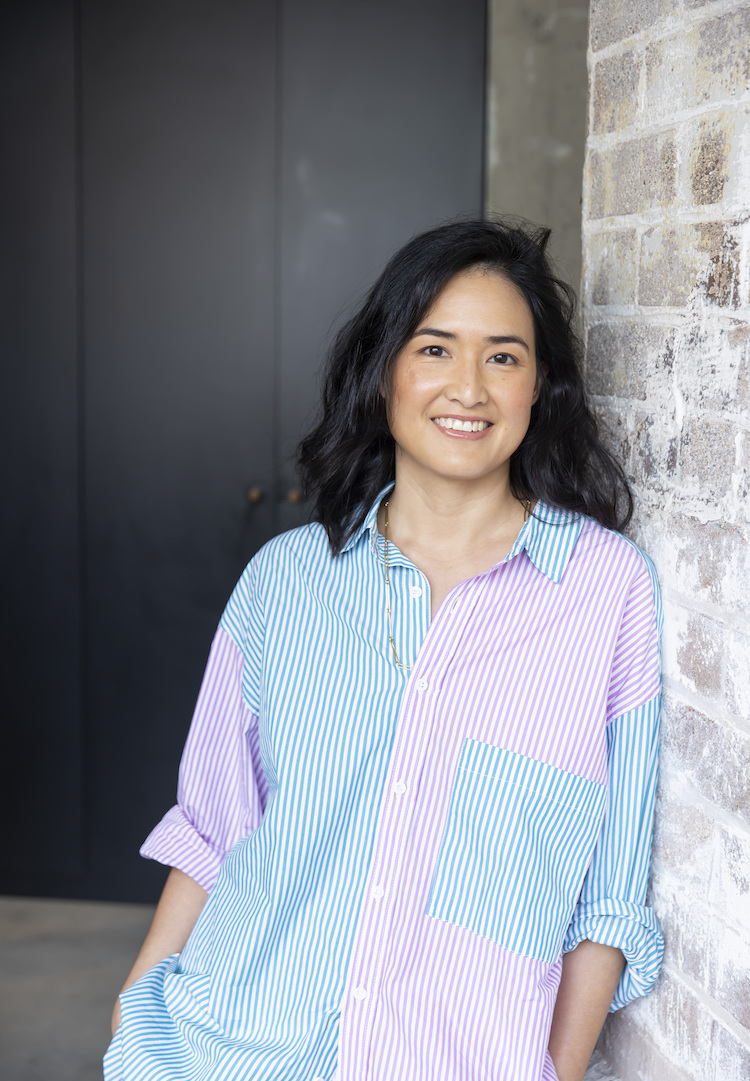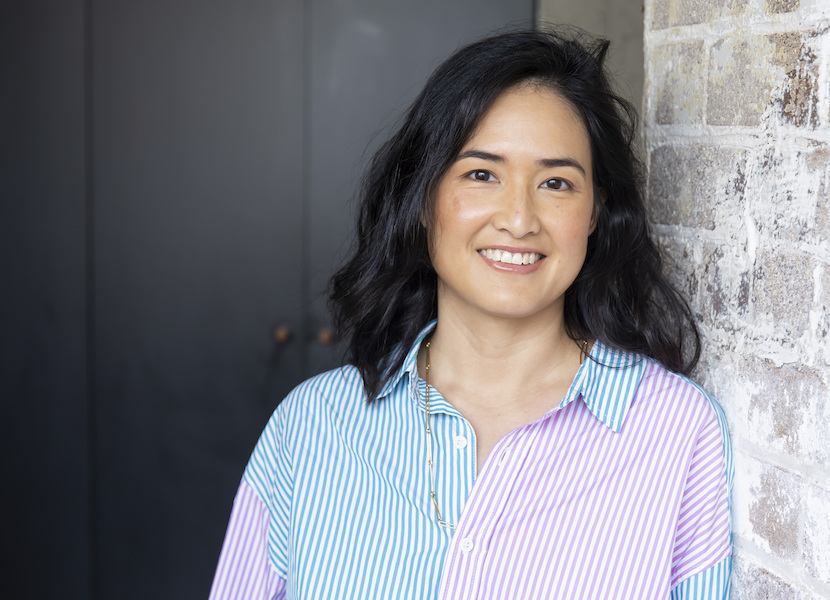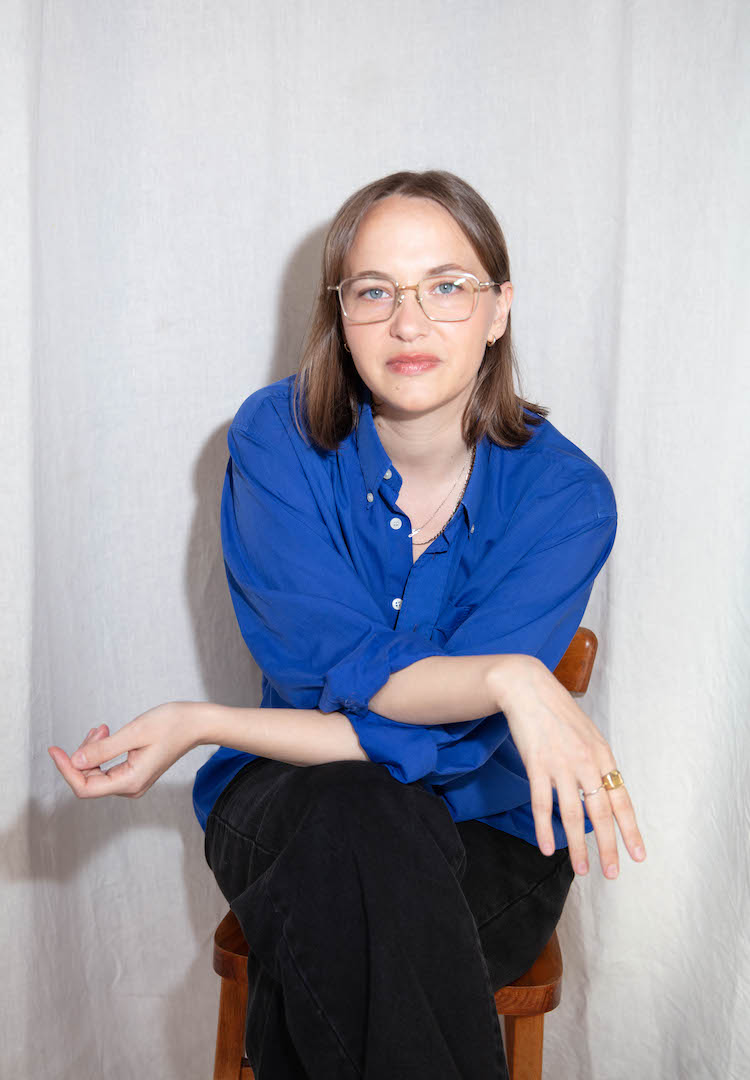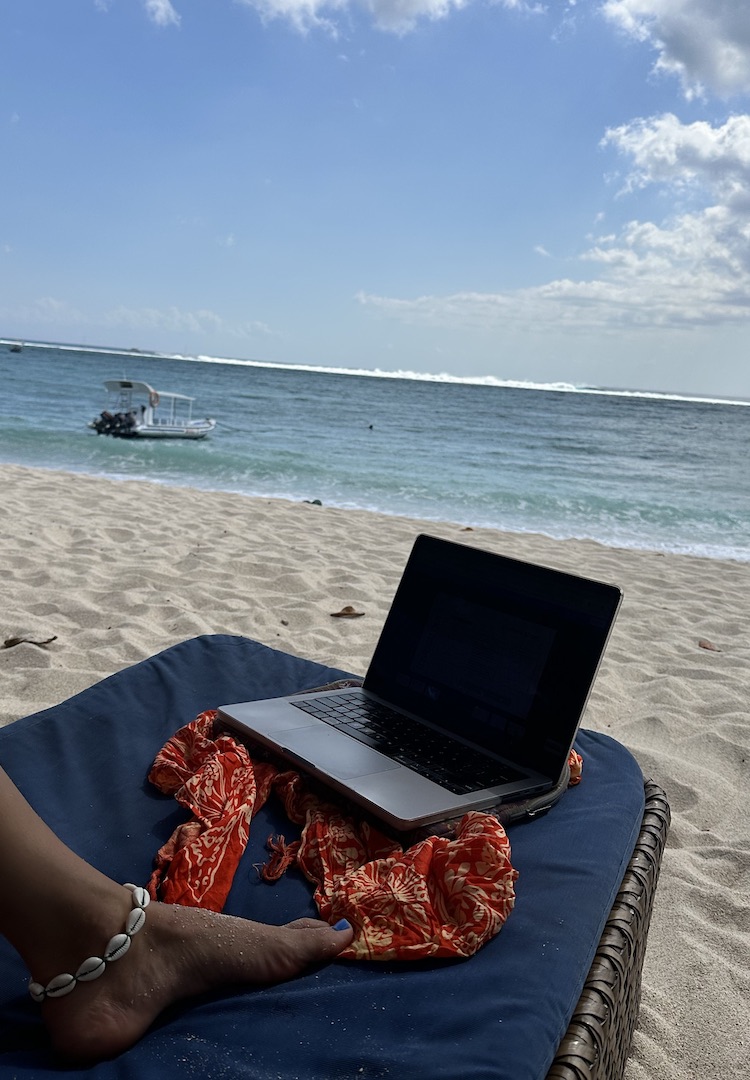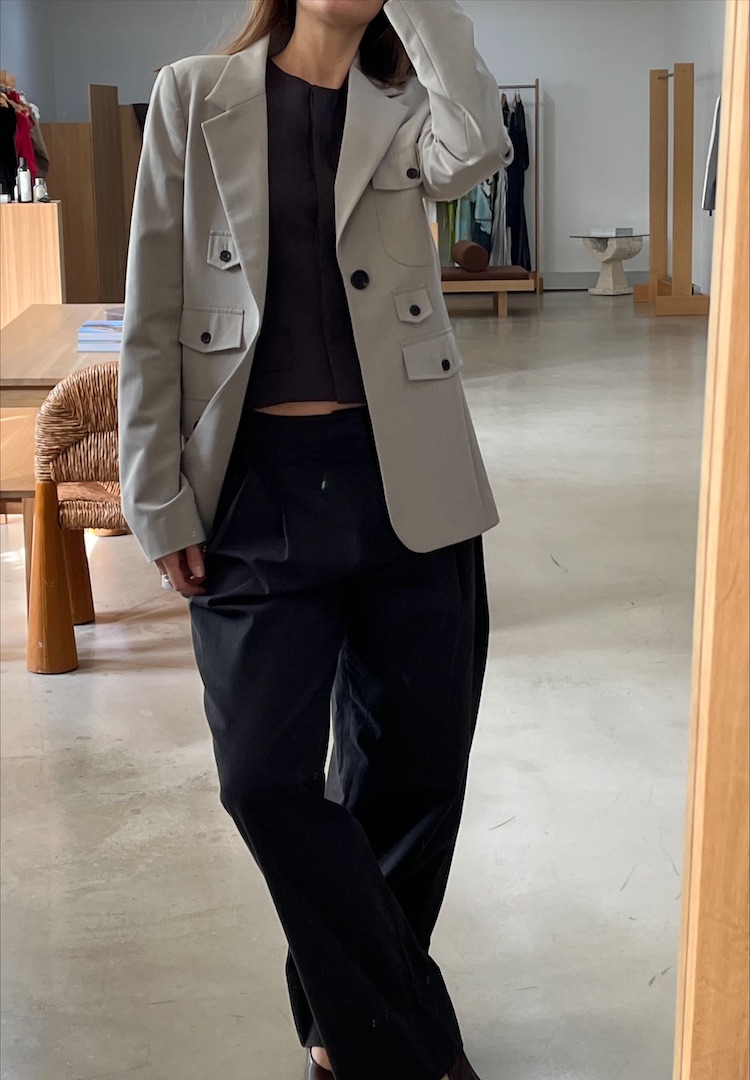How I Got Here: Blackbird’s General Partner on why relationships are the strongest form of differentiation
PHOTOGRAPHY BY ANNA KUČERA
“Go and seek out those opportunities – don’t wait for jobs to be posted, or opportunities to be presented to you.”
Have you ever stalked someone on LinkedIn and wondered how on earth they managed to land that wildly impressive job? While the internet and social media might have us believe that our ideal job is a mere pipe dream, the individuals who have these jobs were, believe it or not, in the same position once, fantasising over someone else’s seemingly unattainable job.
But behind the awe-inspiring titles and the fancy work events lies a heck of a lot of hard work. So what lessons have been learnt and what skills have proved invaluable in getting them from daydreaming about success to actually being at the top of their industry?
Looking for a new 9 to 5? Head to our Careers page for new listings daily.
Welcome to How I Got Here, where we talk to women who are killing it in their respective fields about how they landed their awe-inspiring jobs, exploring the peaks and pits, the failures and the wins, and most importantly the knowledge, advice, and practical tips they’ve gleaned along the way.
This week we speak to Samantha Wong, General Partner at the Australasian venture capital firm, Blackbird. Though she started working at a law firm in Sydney, Samantha spent the beginning of her career “dabbling in passion projects”. Moving to a fast-growing eCommerce startup, she gained experience building and nurturing relationships with ambitious business founders.
At Blackbird, Samantha found herself quickly falling in love with the craft of investing. “It is such a privilege to work with founders every day who are truly the most extraordinary people,” she says. “The opportunities for learning are endless.” Below, Samantha speaks on problem-solving, creating meaningful relationships and the difficulties of raising a fund through the pandemic. Read on to hear her best career advice.
What do you do and what’s your official job title?
I’m a General Partner at Blackbird, a venture capital (VC) firm based in Australia and New Zealand. I lead the Auckland office. My job is to find hugely ambitious Aussie and Kiwi founders solving deeply painful problems as early as possible, and try to back them with money, time and most importantly, belief.
Take us back to when you were first starting out. Did you study to get into your chosen field, or did you start out with an internship/entry-level role and climb the ladder? Tell us the story.
I studied a Bachelor of Laws (LLB) and Bachelor of Arts (BA) majoring in history at UNSW. Like a lot of people who do a BA/LLB, I had no burning passion to become a lawyer, but I ended up doing a clerkship at MinterEllison, a big global law firm in Sydney, and practised as a corporate merger and acquisition and transaction disputes lawyer for four years.
I actually quite liked it, but I was always dabbling in passion projects and eventually decided I needed to scratch my entrepreneurial itch before the golden handcuffs were fastened for good.
I took a one-year leave of absence and eventually through a lot of hustle and luck, found my way into a marketing then product role at a fast-growing eCommerce startup, SurfStitch as employee number 20-ish. This was very early in the development of the startup ecosystem in Australia around 2010.
At SurfStitch, I had the opportunity to move to France to build the team to execute our European strategy… that was like a mini-startup in a startup or a mini-founder apprenticeship. I then took those experiences and started my own company, which got into the Startmate Accelerator.
Ultimately we pivoted and failed, but I learnt a lot about what is required to build a successful startup. In 2015, I joined Blackbird as their first hire. I got to know the Co-Founders of Blackbird as they were running the Startmate Accelerator at the time.
I didn’t intend to become an investor. I just hoped that if I did a good job working for Blackbird, they would invest in my next startup. But, I quickly fell in love with the craft of investing and Blackbird’s mission. I also felt that, joining Blackbird so early, that I was building a startup, and I couldn’t imagine a better team, product or market timing. I learned investing by watching, reading and doing. Very much an apprenticeship.
What challenges/hurdles have you faced getting to where you are now? Can you tell us about one in particular?
Probably the most challenging period was starting the New Zealand fund. I conceived of the New Zealand strategy in early 2019 when I was five months pregnant. We raised the fund through that year and during my parental leave. I moved to Auckland in January 2020 when my daughter was five months old.
My partner and I didn’t know a single person outside of work. My daughter unfortunately was a terrible sleeper and I had post-natal depression. We were still raising the fund… [and] then the world descended into chaos with COVID and border closures in March that year. It was a stressful and isolating time (literally, we couldn’t leave the house).
But, we got through it. We raised the fund. I hired an amazing team. We found and invested in some amazing companies. In hindsight, it was actually a blessing to be in lockdown, because I saw my daughter in her earliest years so much more than if I’d gone back to work and had her in childcare all day.
What do you want people to know about your industry/your role?
One of the most positive and exciting developments in tech and startups today is the greater diversity of backgrounds of investors. Not just identity, but the types of careers and life experiences people bring to this job.
There is still work to be done on this front of course, but from where I stand, there is a lot to be excited about. Oh, and you don’t need a finance qualification to work in this industry! Just an appetite to learn.
What’s the best part about your role?
The constant flow of learning and how rewarding it is to believe in people, very early. It is such a privilege to work with founders every day who are truly the most extraordinary people.
It’s also just very interesting – I’ve invested in everything from enterprise software to prevent money laundering to making meat from animals we don’t eat today in bioreactors. The opportunities for learning are endless. The constant thread is founders. The best founders lead you to fall in love with all sorts of businesses and markets.
What would surprise people about your role?
Maybe just how varied a day can be. From the outside, the world of VC may seem like it’s a bunch of guys analysing spreadsheets. But in reality, it’s a lot more human. Blackbird is extremely founder-focused, and I spend a lot of time working directly with founders to problem-solve and support.
There’s always a minor crisis happening in the portfolio and often, in fact, ideally, you’re the first port of call for the founder to talk it out. You can switch from that to a meeting with a new company or a board meeting, and then an internal meeting planning the next fundraiser, to helping interview a potential candidate for a portfolio company. No two days are alike.
What skills have served you well in your industry?
Being empathetic and a good listener, [plus a] strong writing ability. At the stage we invest often the founder hasn’t necessarily found the ideal way to express everything yet, so you have to be able to listen carefully and well for the nuggets of insight and ask questions in the right way to allow that to reveal itself.
Then, when you’re working with founders, you want to bring that same quality to the relationship. They’re the CEO, and they have so much more context on the business than you, so you really want to listen and pay attention while also trying to calibrate or help them think through things they might not be thinking of.
To work in an investment team, effective written communication is essential. We might spend 20, 30 or more hours when we work on an investment idea, and I have to get buy-in from the rest of the investment team if I want to take that forward.
There’s no way they can all spend the same hours I have understanding the business. So finding a way to concisely but effectively communicate why you have conviction and where the risks might be is a critical skill if you want to get a deal done.
What advice would you give to someone who wants to be in a role like yours one day?
Start by spending time around smart [and] interesting people who might go on to be founders. Universities are a great place to do that, or alumni organisations. The most important thing as a VC is to be able to source good investment opportunities and that, for the most part, comes down to your networks… then when you’re in the flow of dealflow, you have to be able to win the deal.
Winning the deal is not about money – there are likely other people who can give them money, too. So your competitive edge has to come down to something else, and I personally believe relationships are one of the strongest forms of differentiation.
What about a practical tip?
Say yes to things you’re not qualified to do. Research tells us that women are less likely to put themselves forward for roles they don’t believe they are fully qualified for. The only job I’ve done that I was truly qualified to do was law – and it didn’t make me that happy.
And go and seek out those opportunities – don’t wait for jobs to be posted, or opportunities to be presented to you. If you want something, just go and ask. The worst thing that can happen is they say no, and you’re no worse off than if you didn’t ask. But you also might have a chance at getting exactly what you want!
Read the rest of the How I Got Here series here.
Looking to step up to a career in media? Each week we send a wrap of industry jobs straight to your inbox. Enter your details below and we’ll keep you in the loop, or browse current openings here.


